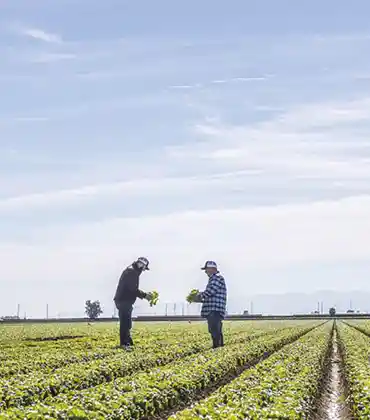THANK YOU FOR SUBSCRIBING
By Laurence COX, Sustainability Manager (UK Lead), Carlsberg Marston’s Brewing Company
An Artful Insight into Carlsberg Marston's Sustainable...
By Kasper Garnell, Brand Director, Joe & The Juice
How Joe & The Juice Are Taking App Ordering To The Next...
By Michael Ciepiela, Director, Food Safety and Quality Assurance, Taylor Farms
No Standard, No Problem -Setting Limits on Processes
By Journee Benson, IT Services Manager, Cargill
Why Restaurants Must Adopt Restaurant Management Software

Tackling Food Waste: A Global Ethic Imperative
Violeta Costa, Global Sustainability Manager, GB Foods

 Violeta Costa, Global Sustainability Manager, GB Foods
Violeta Costa, Global Sustainability Manager, GB FoodsIn a world where millions go hungry every day, the food waste issue stands as a perverse paradox. The stunning amount of food discarded annually not only contributes to environmental degradation but also worsens worldwide starvation emergencies. However, by understanding the facts surrounding food waste and implementing effective strategies, we can collectively work towards a more sustainable and equitable future.
Understanding the Scope:
The scale of food waste is alarming. According to the Food and Agriculture Organization of the United Nations (FAO), approximately one-third of all food produced for human consumption—equivalent to 1.3 billion tons—ends up wasted each year. This waste occurs at various stages of the food supply chain, but mainly at the distribution and consumption stages. In developed countries, much of the food waste happens at the consumer level, with households and restaurants discarding large quantities of edible food.
Food waste harms society as a whole, because it makes access to essential goods more expensive, waste scarce natural resources that are used in the production and work of farmers, increases environmental impact, and hampers efficiency of the productive sector and its competitiveness.
Strategies for Reduction:
Addressing food waste requires a matrix approach involving individuals, businesses, and policymakers, and certainly a thorough revision of food systems practices with food safety and quality at the center of this complex equation.
"Organizations and individuals can also support initiatives that rescue surplus food and redirect it to those in need, thereby alleviating hunger and reducing food waste simultaneously"
All the stakeholders have the imperative objective of making a self-diagnosis of their production processes, identifying where food losses occur, establishing measures to minimize them and assigning them to other uses, with human consumption being the highest priority, through donation or redistribution of food.
But Consumer Awareness and Education as well as tailored policies that facilitate the identification of specific incentives and regulatory frameworks adapted to the context remain the key drivers for change. Educating consumers about proper food storage, portion control, and expiration dates can significantly reduce household food waste.
Encourage the sale of products with a best-before or near expiration date or adjust the best-before dates of your products to the maximum that guarantees their adequate quality; promoting research and innovation on the viability of foods to prolong useful life is a strategy that also must be promoted.
Additionally, raising awareness about the impact of food waste on the environment and society can encourage more mindful consumption habits.
The environmental impact of food waste is substantial, as it contributes to greenhouse gas emissions, water wastage, and deforestation. Food that ends up in landfills produces methane, a potent greenhouse gas that contributes to climate change. Additionally, the resources used to produce this wasted food, such as water, energy, and land, are also squandered.
Businesses can improve their Supply Chain Management by implementing better inventory management systems, reducing overproduction or developing technological innovations in food preservation technologies that can extend the shelf life of perishable items and reduce spoilage without jeopardizing the healthy and nutritional food scheme.
Additionally, embracing a circular economy model, where resources are reused and recycled, can minimize waste generation and promote resource efficiency within the food industry.
Conclusion:
In addressing the issue of food waste, it is crucial to implement strategies that focus on prevention, reduction, and redistribution. This includes better inventory management, improved harvesting techniques, and educating consumers about responsible food consumption. Organizations and individuals can also support initiatives that rescue surplus food and redirect it to those in need, thereby alleviating hunger and reducing food waste simultaneously.
By raising awareness, changing behaviors, and adopting sustainable practices, we can all play a part in tackling the issue of food waste and creating a more just and sustainable food system for all.
Read Also















